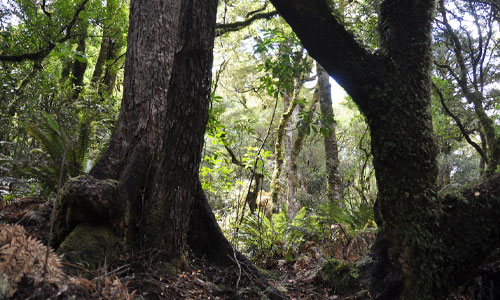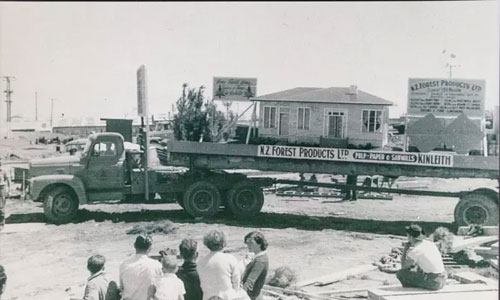GG International's adept handling of the bid management and its challenges was a critical factor in delivering this landmark transaction, demonstrating how complex, high-value acquisitions can be accomplished with professionalism, cultural sensitivity, and strategic vision.
— New Zealand —
collaboration. diligence. triumph.










GG International assists Fletcher Challenge in $2+Billion Landmark Forestry Acquisition
"This sale and the plans of the new owners will help entrench our reputation as a world-class processor and marketer of timber."
— Bill Birch, New Zealand Finance Minister
Challenge
In the late 1990s, Fletcher Challenge Ltd sought to acquire the state-owned Forestry Corporation of New Zealand’s forest assets – a vast portfolio of plantation forests in the central North Island, totaling about 188,000 hectares (roughly 12% of New Zealand’s plantation forests).
This ambitious acquisition came with several formidable challenges. First, the forests were on land still owned by the Crown and subject to Māori land claims under the Treaty of Waitangi. It was essential to navigate indigenous rights issues and assure Māori groups that their claims would remain protected by law and unaffected by the sale.
Second, the government imposed contract constraints involving local pulp and paper mills: all existing wood-supply contracts to domestic processors had to be honored, and bidders were required to commit to investing in local wood processing facilities to support New Zealand’s industry.
Finally, the bid process demanded strict confidentiality and rigorous valuation protocols. Handling sensitive commercial information, performing thorough due diligence on the forest assets, and valuing a NZ$2+ billion resource accurately were critical to forming a winning bid without breaching trust or disclosure rules. These obstacles required a delicate balance of stakeholder management, compliance with government conditions, and technical expertise in finance and forestry.
Strategy
GG International took charge as the bid manager, leading Fletcher Challenge’s consortium through a comprehensive strategy to overcome the above challenges. A cornerstone of this strategy was proactive stakeholder engagement. The team facilitated negotiations between government officials and Māori representatives to resolve land ownership concerns. By working closely with these parties, GG International helped structure the deal so that the Crown would retain ownership of the land (honoring Treaty obligations) while the forestry rights could be transferred – an arrangement that satisfied indigenous groups and enabled the sales process to proceed. This collaborative approach ensured that Māori interests were acknowledged and that the transaction complied with all legal protocols regarding Māori land rights.
In parallel, GG International enforced strict confidentiality and compliance standards throughout the bid process. The team managed secure data rooms and confidentiality agreements to protect sensitive information. They conducted robust financial analyses and timber valuations, providing Fletcher Challenge with a clear understanding of the assets’ worth and risks. This diligence in analyzing data provided by the vendor enabled the consortium to calculate an appropriate bid price grounded in sound valuation principles. GG International’s experts rigorously checked all documentation and adhered to required protocols, instilling confidence that the bid would meet the government’s high standards for accuracy and propriety.
Another key element of the strategy was comprehensive due diligence and documentation management. GG International liaised closely with the government’s sale agents (the vendor representatives), maintaining a constructive working relationship and clarifying requirements as they arose. The team oversaw Fletcher Challenge’s participation in the due diligence process, systematically examining the forestry assets’ details – from timber inventory data to existing supply contracts with mills – to ensure there were no surprises. They ensured that all existing contractual obligations (such as those to pulp and paper mills) were factored into the bid and future plans. Simultaneously, GG International prepared and vetted all necessary documentation for the bid submission, leaving nothing to chance. By the time the bid was submitted, every element had been double-checked – from legal agreements to financial models – to ensure compliance and persuasiveness. This strategic orchestration of people, information, and processes by GG International was pivotal in presenting a bid that was both competitive and credibly addressed all government concerns.
Transformation
The outcome was a resounding success. Fletcher Challenge’s consortium (with partners Brierley Investments and CITIC) emerged as the winning bidder, acquiring the Forestry Corporation’s cutting rights with a bid valued at approximately NZ$2.02 billion. All pre-sale challenges were deftly managed in the final agreement. The land itself remained under Crown ownership, meaning Māori treaty claims to those lands were preserved and would not be compromised by the transfer of forestry rights. Likewise, the consortium agreed to continue supplying wood to New Zealand’s domestic mills under existing contracts and at market rates, ensuring that local pulp and paper operations were safeguarded. By meeting these conditions, the deal won support from both the government and local stakeholders. GG International’s leadership in addressing stakeholder concerns and adhering to confidentiality and valuation protocols proved instrumental in securing government approval and stakeholder trust for the transaction.
This acquisition became a milestone in New Zealand’s forestry sector. It placed a significant portion of the nation’s forests into private hands, allowing Fletcher Challenge to integrate these assets into its forestry and processing operations. The 188,000 hectares of forest resources obtained in the deal provided Fletcher Challenge with a tremendous strategic asset base and helped pave the way for an integrated wood-processing enterprise envisioned by the new owners.
The investment plans associated with the acquisition – including an estimated NZ$260 million injection into modern sawmills and processing plants – promised to create up to 700 new jobs and boost export earnings for the region.
In retrospect, the project’s significance lay not only in its size but also in how it was achieved: through effective collaboration between a private company, the government, and indigenous Māori stakeholders.